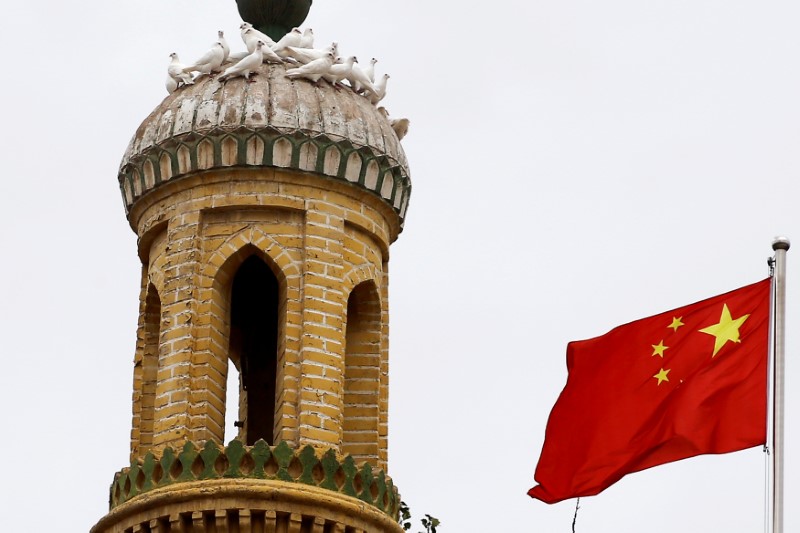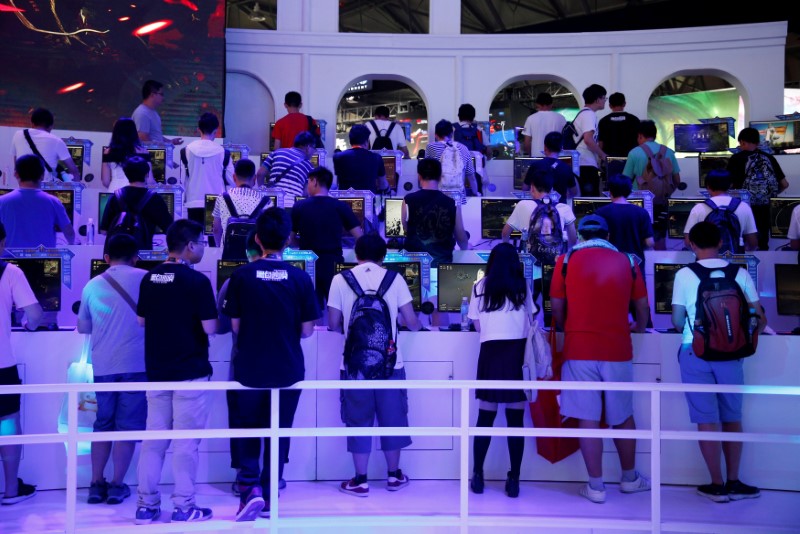
A Chinese national flag flutters near a minaret of the ancient Id Kah Mosque in the Old City in Kashgar in Xinjiang Uighur Autonomous Region, China September 6, 2018. Picture taken September 6, 2018. To match Special Report MUSLIMS-CAMPS/CHINA REUTERS/Thomas Peter
December 29, 2018
BEIJING (Reuters) – Intellectual property rights cases can from next month be taken to China’s Supreme Court, the government said on Saturday, as the country seeks to strengthen protections in the face of complaints from the United States about the issue.
China and the United States are currently in talks to resolve a trade dispute, in which both countries have put tariffs on imports of each other’s products.
The United States, along with the European Union, have long complained about poor enforcement of intellectual property rights in China, and this has been a key complaint of the Trump administration, along with forced technology transfers and a yawning trade gap.
Beijing in response has been seeking to show that it is serious about addressing U.S. concerns.
Deputy chief justice Luo Dongchuan told a news conference that from Jan. 1 the Supreme Court would begin handling appeals on intellectual property rights cases, whereas previously only provincial-level high courts would handle them.
“Setting up a Supreme Court intellectual property rights court is an important decision by the Communist Party, is a major step to strengthen the legal protection of intellectual property rights and will have a major impact at home and abroad.”
Luo did not directly answer a question about how the United States should view the move and what it said about China’s efforts to protect intellectual property, saying that such protection was a “basic national policy”.
“China is already the world’s second largest economy, and in the future China’s development will rely on innovation. The protection of innovation needs there to be legal protection for intellectual property rights.”
(Reporting by Ben Blanchard. Editing by Jane Merriman)

